Historical Knowledge Normal History Worksheets for Ages 4-9
18 filtered results
-
From - To
Explore our engaging Historical Knowledge Normal History Worksheets designed for children aged 4-9. These interactive worksheets cultivate a child's understanding of important historical concepts, figures, and events in an enjoyable way. Tailored for various learning styles, each activity encourages critical thinking, enhances vocabulary, and fosters a passion for history. From coloring pages about famous leaders to fun quizzes on significant events, our resources ensure that learning history is as exciting as it is educational. Perfect for classroom use or at-home learning, these worksheets invite early learners to discover the past and develop a lifelong appreciation for the world around them.


White House Worksheet
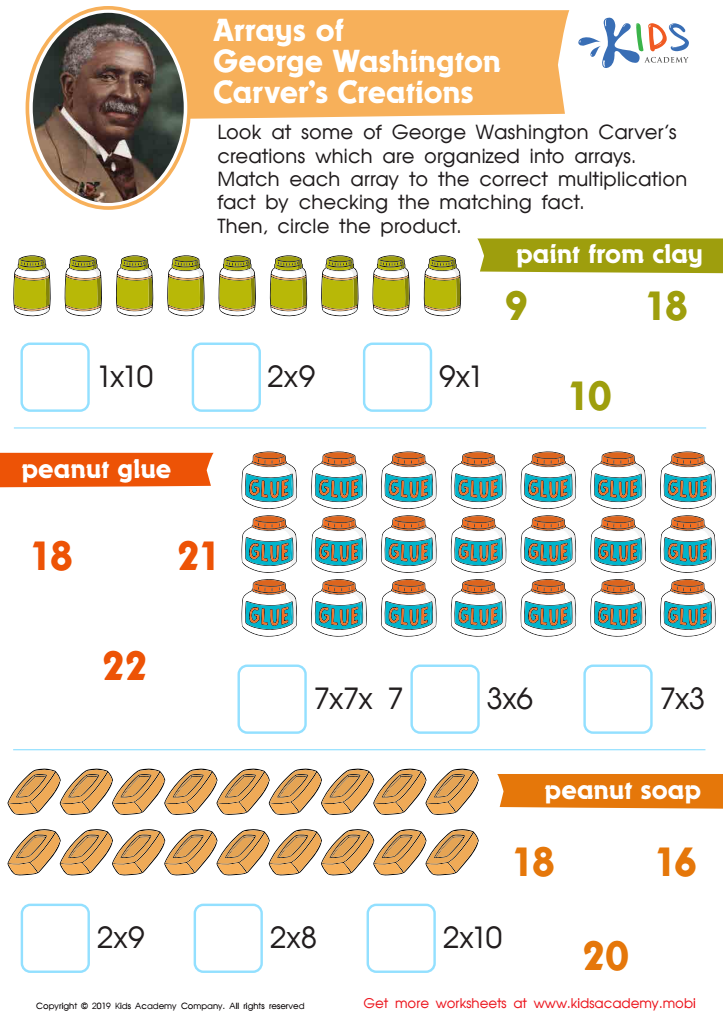

Arrays of George Washington Carver’s Creations Worksheet
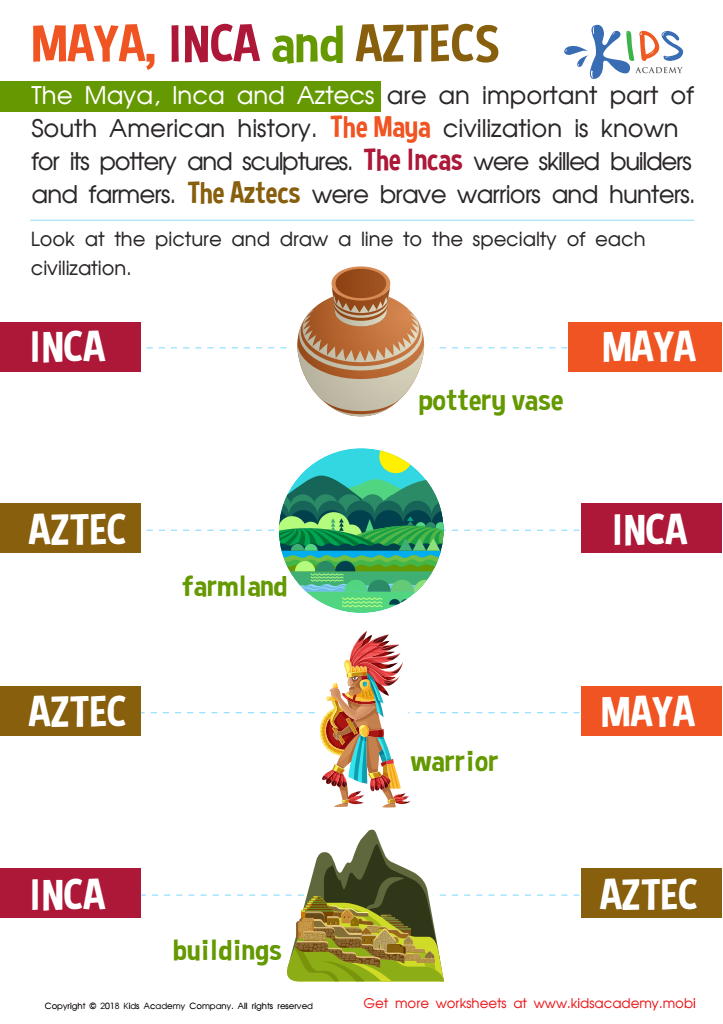

Maya, Inca and Aztecs Worksheet
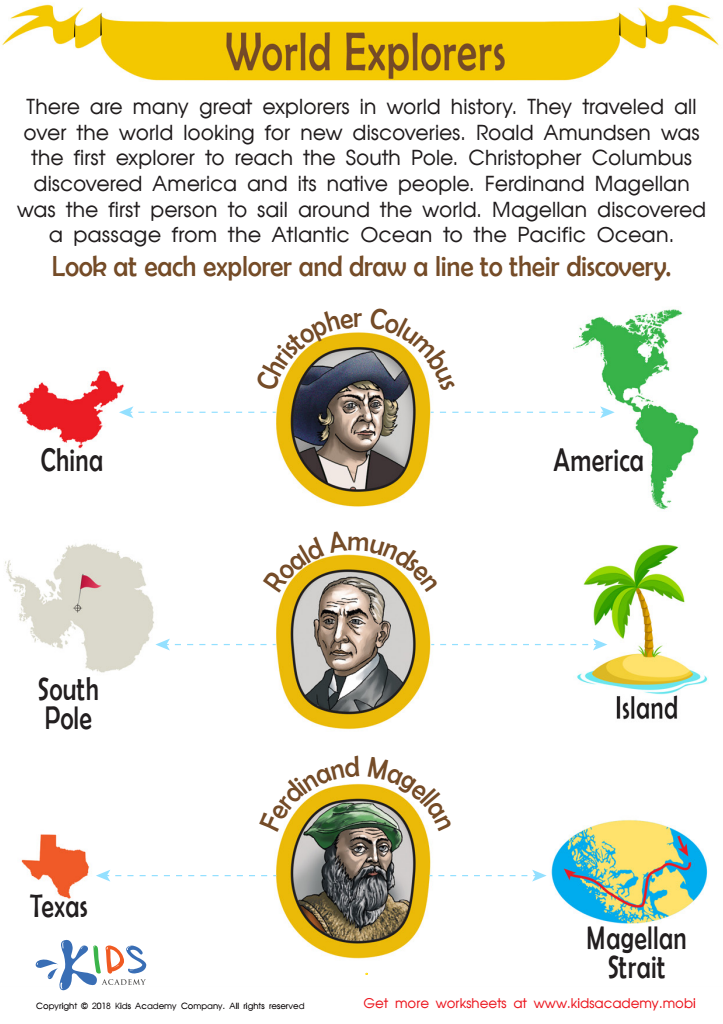

World Explorers Worksheet
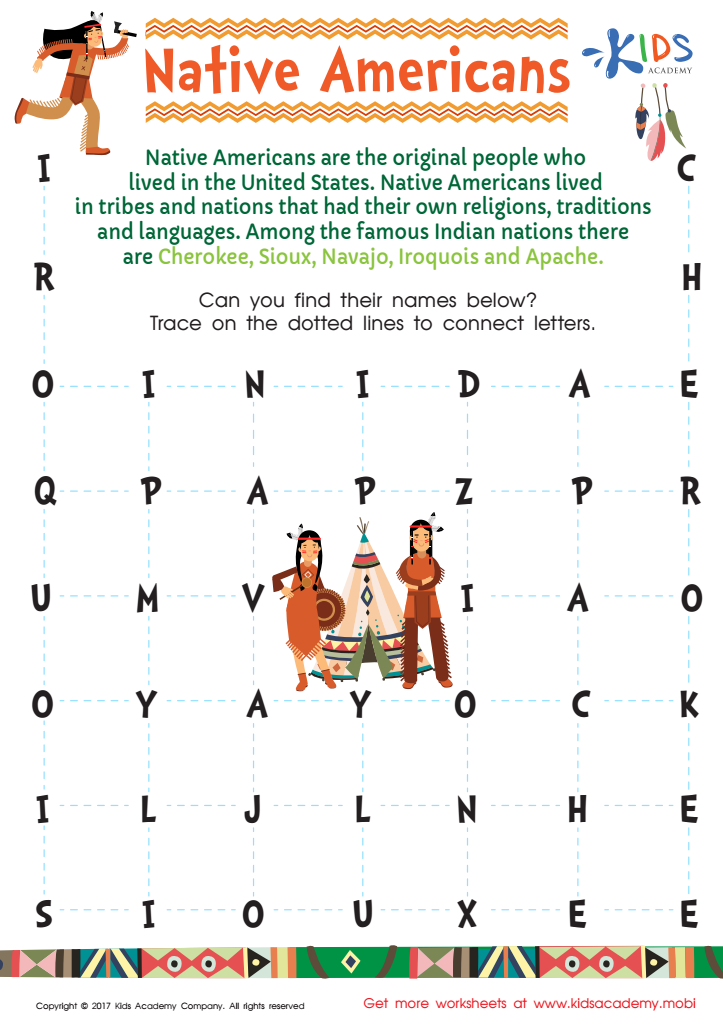

Native American Word Search Printable


Benjamin Franklin Worksheet
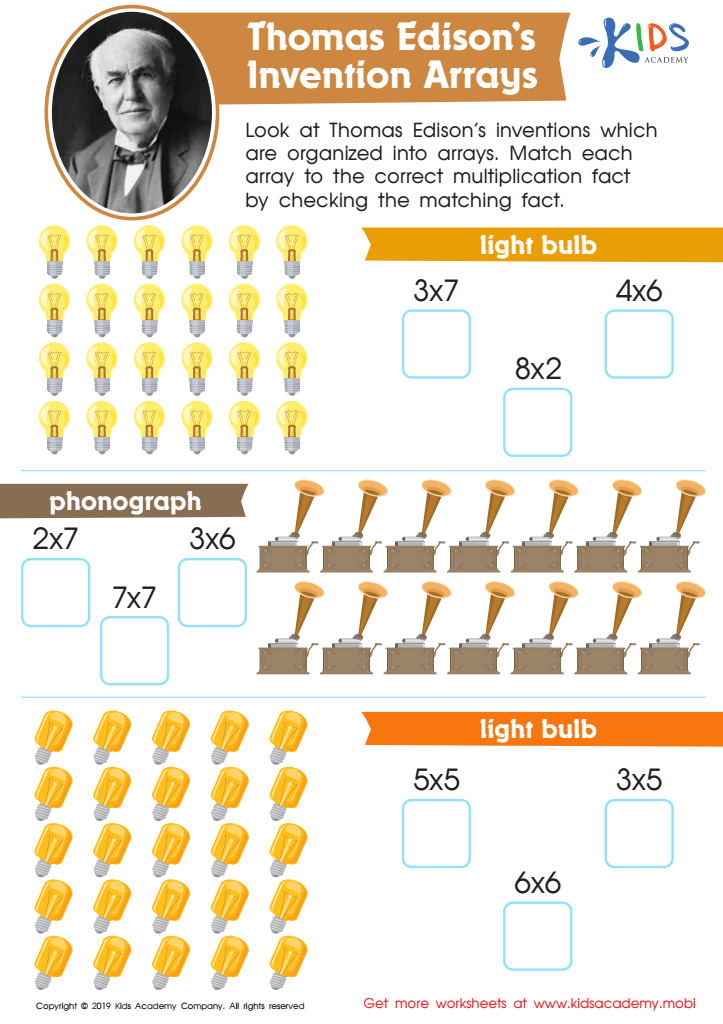

Thomas Edison’s Invention Arrays Worksheet
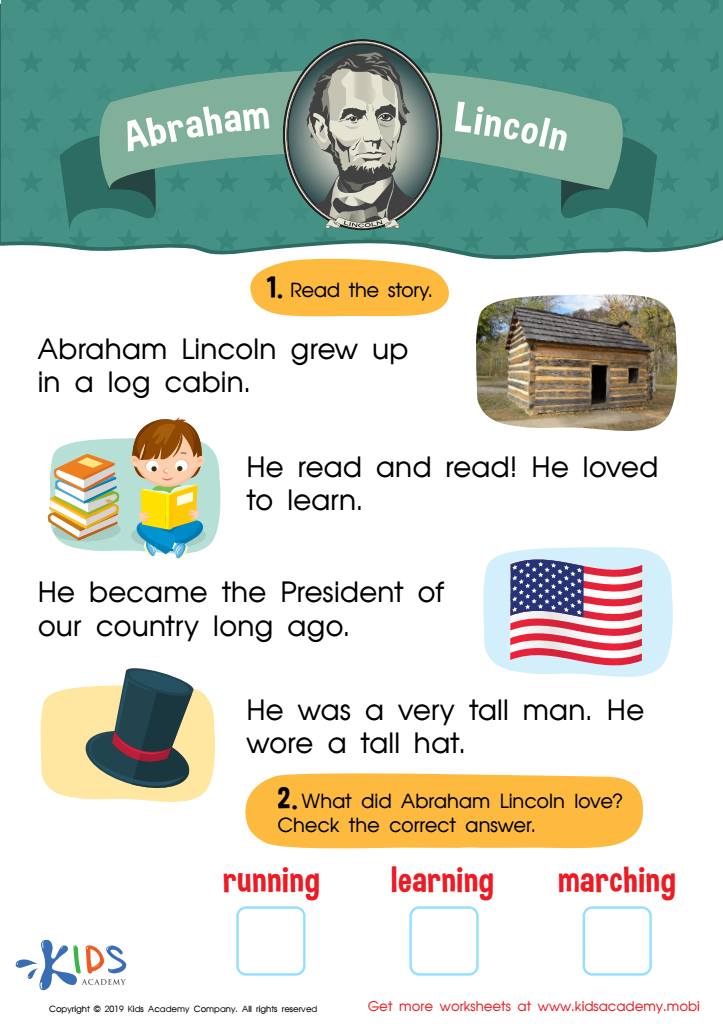

Abraham Lincoln Worksheet
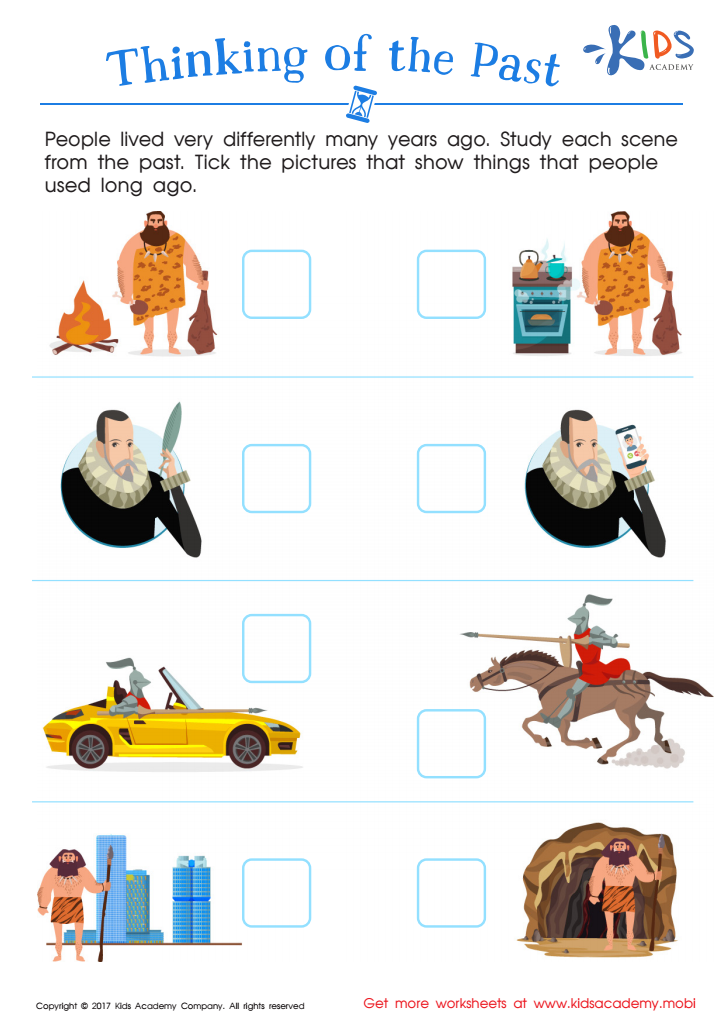

Thinking Past Printable
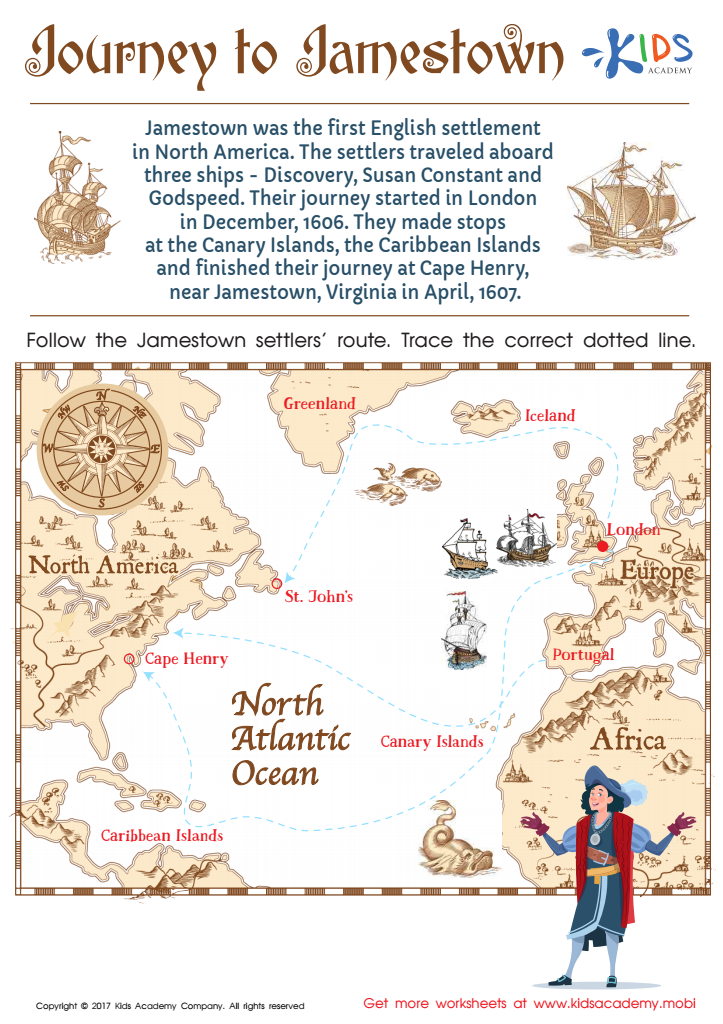

Journey to Jamestown Worksheet
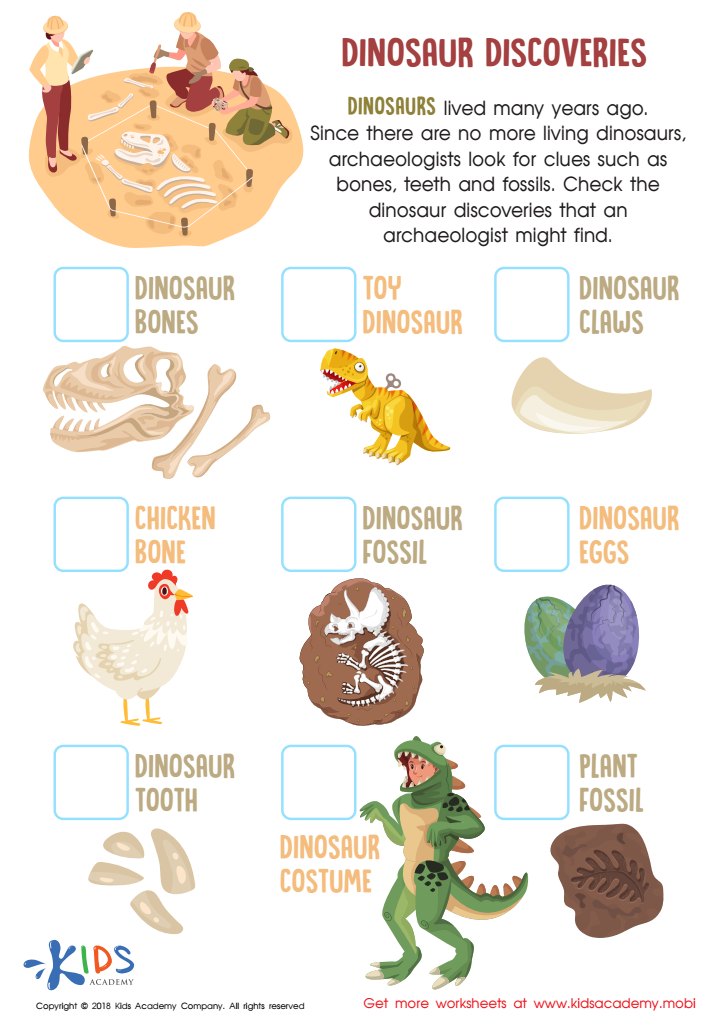

Dinosaur Discoveries Worksheet
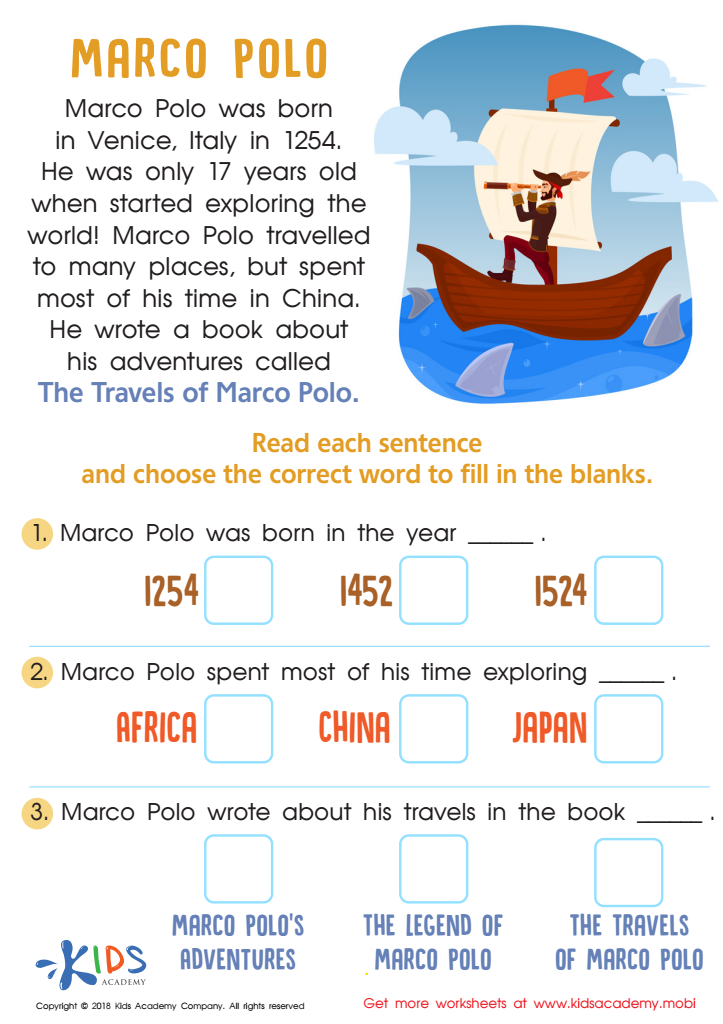

Marco Polo Worksheet
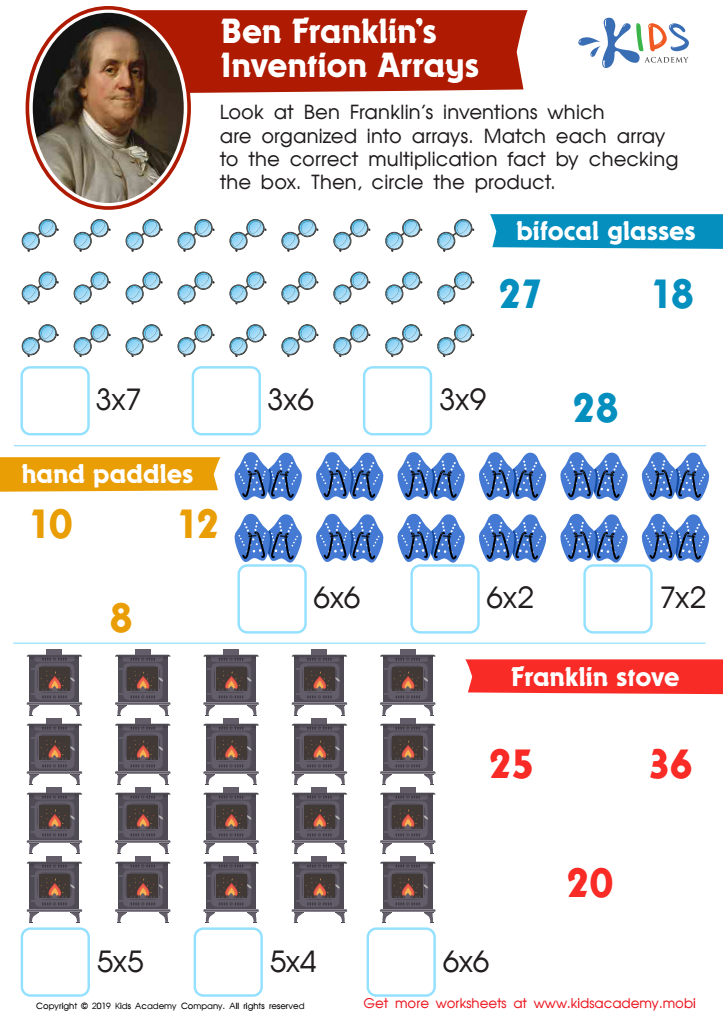

Ben Franklin’s Invention Arrays Worksheet
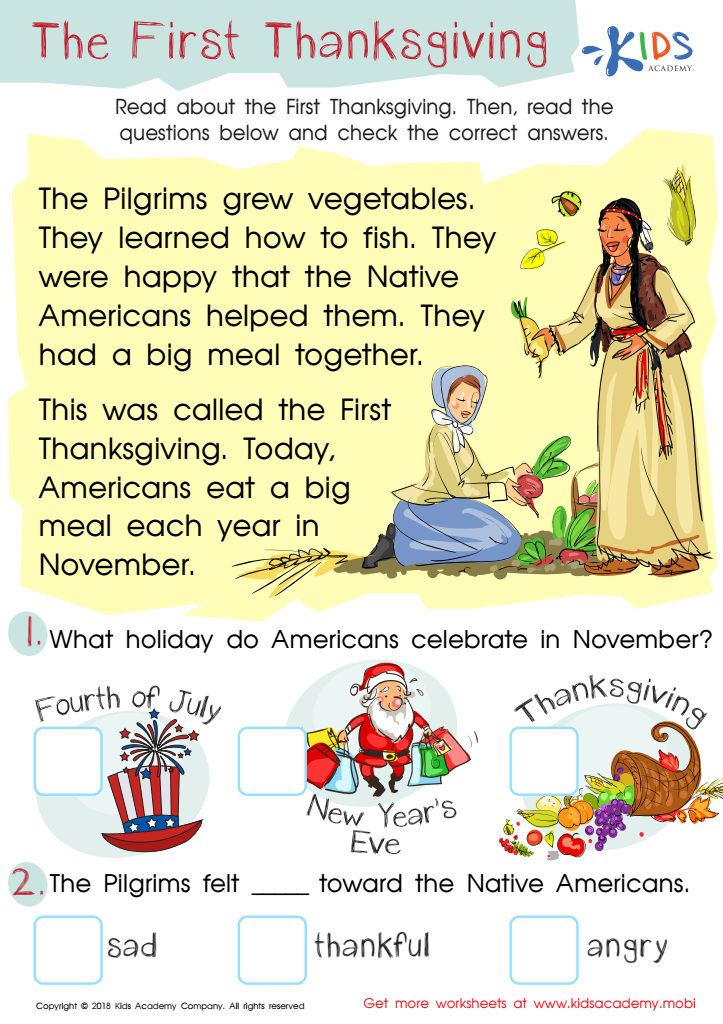

Assessment: First Thanksgiving Worksheet
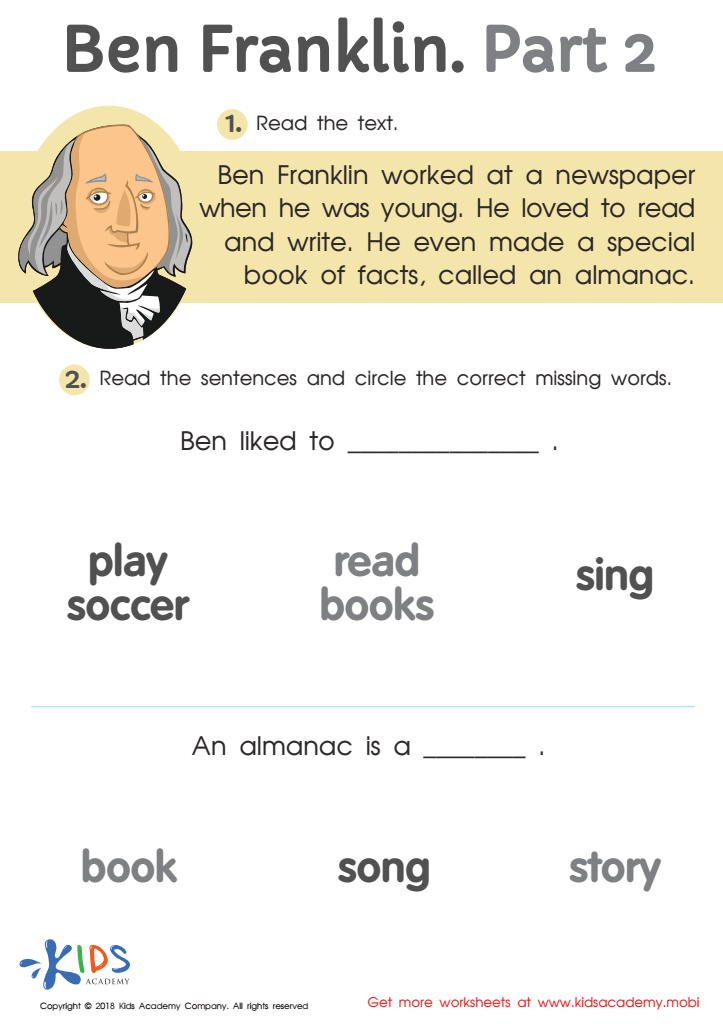

Ben Franklin Part 2 Worksheet
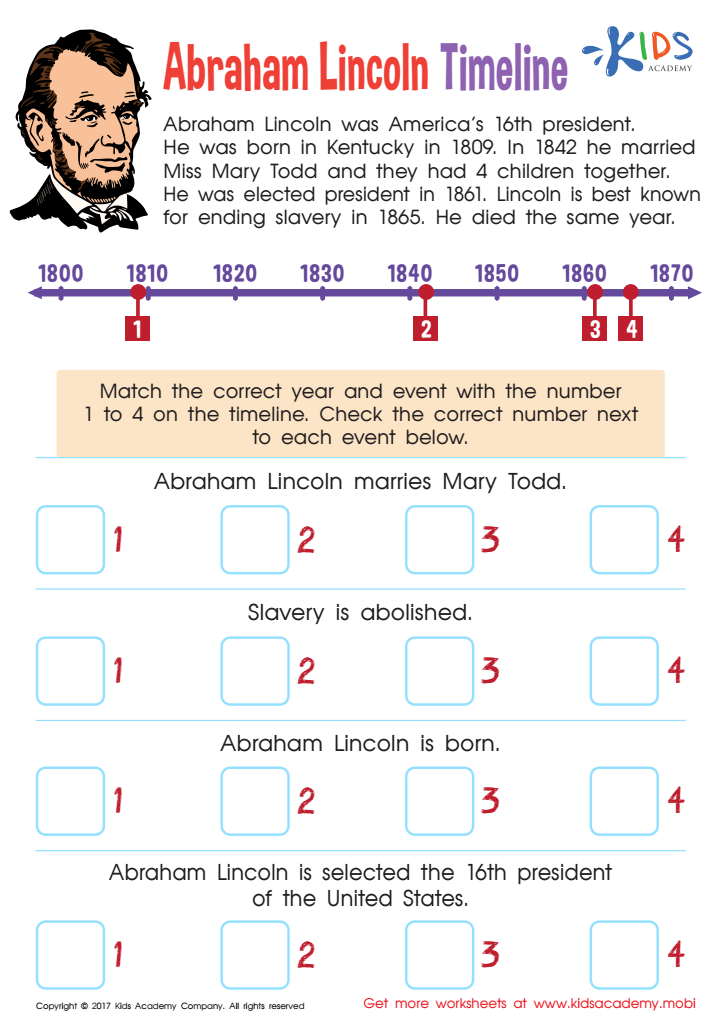

Abraham Lincoln Timeline Worksheet


Gandhi Worksheet
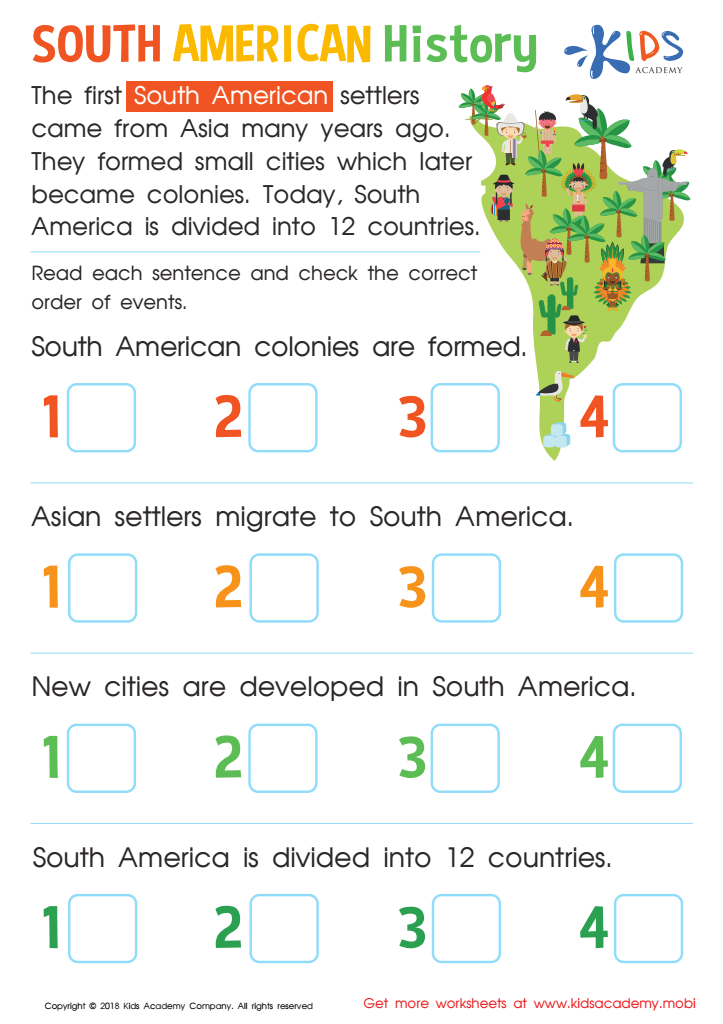

South American History Worksheet
Parents and teachers should prioritize historical knowledge for children aged 4-9 because it lays the foundation for critical thinking and a well-rounded education. Understanding history fosters curiosity and comprehension of the world around them. At this age, children are developing their identities and sense of belonging; learning about diverse cultures, events, and influential figures helps them understand their own place in the world.
Moreover, historical knowledge encourages empathy and respect for others. When children explore different historical narratives, they learn to appreciate various perspectives, reducing prejudice and fostering inclusivity. Learning history also promotes storytelling skills, stimulating their imagination and helping them articulate their own thoughts more effectively.
Engaging with historical content supports various areas of cognitive development. It enhances vocabulary and comprehension skills as children learn new terms and concepts. Through interactive activities and discussions about the past, children practice reasoning and problem-solving. Additionally, history can introduce foundational lessons about morals, governance, and the impacts of individual actions, laying the groundwork for responsible citizenship.
Ultimately, instilling historical knowledge in young minds equips them with the tools needed for lifelong learning, encouraging them to ask questions, explore their culture, and develop a genuine curiosity about what came before them.
 Assign to My Students
Assign to My Students















